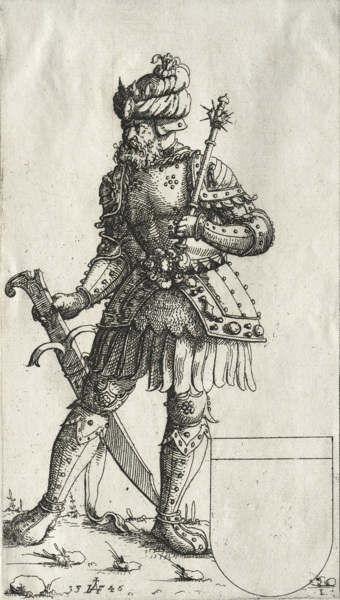
ISSN 2983-9432
Method of peer review
double-blind undertaken by an external specialist (i.c. appointed by the Board)
Keywords
politics, art, people, culture, economy, society, government, history, East Europe, Central Europe, 476–1795 AD/CE
Accepted Language(s):
English
Accepts Contributions in Open Access
This series publishes interdisciplinary scholarship on the history of East Central Europe. It seeks to advance understanding of the region’s social, economic, political, and cultural histories as integral to Europe’s development and as contributors to wider historical processes beyond the continent. East Central Europe is treated not only as a geographic or cultural space but as a framework for historical enquiry, offering fresh perspectives on power, society, belief, and exchange across long time spans.
The series challenges inherited models that cast East Central Europe as a periphery, frontier, or passive recipient of influence. It questions simplified accounts of cultural transmission and separation, and instead places the region within broader European and global contexts. Volumes in the series examine connections between peoples, polities, and cultures that were often close, durable, and productive, even when shaped by conflict or difference. Particular attention is given to questions of interconnection, space, and identity across shifting political and cultural boundaries.
By foregrounding the historical processes through which Europe was formed, the series rejects fixed distinctions between ‘us’ and ‘them’. It invites studies grounded in close analysis and comparison that show how societies responded to rule, belief, movement, and exchange. The series welcomes submissions that place East Central Europe at the centre of historical debate rather than at its margins.
-
EDITORIAL BOARD
Editorial Board under the auspices of Australian Catholic University and Adam Mickiewicz University, Poznań
General Editor
Darius von Güttner-Sporzyński, Australian Catholic UniversityAssistant Editors
Magdalena Biniaś-Szkopek, Adam Mickiewicz University
Matthew Firth, Flinders University
Robert T. Tomczak, Adam Mickiewicz UniversitySecretary
Dr Janet Wade, Macquarie University, SydneyEditorial Board
Daniel Bagi, University of Pécs
Richard Butterwick-Pawlikowski, University College London
Józef Dobosz, Adam Mickiewicz University
Emilia Jamroziak, University of Leeds
Adrian Jones, La Trobe University
David Kalhous, Masaryk University
Krzysztof Skwierczyński, University of Warsaw
Talia Zajac, University of ManchesterAbout the Editorial Team
Professor Darius von Güttner-Sporzyński, FRHistS FRSA, Australian Catholic University, Canberra, is a historian of East Central Europe whose work focuses on the transmission of ideas, identity, and power across cultural and political boundaries. His publications range from the Middle Ages to the early modern and modern periods. His current research examines early modern dynastic networks and the cultural, familial, religious, and political dimensions of women’s rulership.
Dr Matthew Firth, Flinders University, Adelaide, is a scholar of medieval history and literature. His research centres on historiography, cultural memory, and the transmission of historical narratives across the Anglo-Scandinavian world between the tenth and thirteenth centuries. His recent work includes a biographical study of tenth-century English queens, analyses of the Sagas of Icelanders, and studies of the afterlives of England’s tenth-century kings.
Dr Robert Tomczak, Adam Mickiewicz University, Poznań, is a historian whose research examines the circulation of ideas and intercultural education in early modern Europe. His work focuses in particular on the Grand Tour and the academic experiences of Polish students in Prague from the sixteenth to the eighteenth centuries. His publications contribute to broader debates on educational mobility and intellectual networks in Europe.
Professor Magdalena Biniaś-Szkopek, Adam Mickiewicz University, Poznań, is Director of the Kórnik Library and a historian specialising in women’s history, medieval marriage, and legal culture. Her research spans twelfth-century Polish political history and the early modern cultural life of elite women. Her recent work examines matrimonial disputes before Polish consistorial courts in the Middle Ages.
Dr Janet Wade, Macquarie University, Sydney, is a specialist in ancient maritime history. Her research focuses on seafaring deities, ritual practice, and the social worlds of sailors and merchants from the late Hellenistic period to Early Byzantium. Her publications examine the cults of figures such as Isis Pelagia and Athena, Roman road networks, and the enduring imprint of ancient travel and maritime infrastructure on later landscapes and societies.
-
AUTHOR INFORMATION
Main Language: English
Double-Blind undertaken by a specialist member of the Board or an external specialist
All volumes in this series are evaluated by an Editorial Board, strictly on academic grounds, based on reports prepared by referees who have been commissioned by virtue of their specialism in the appropriate field. The Board ensures that the screening is done independently and without conflicts of interest. The definitive texts supplied by authors are also subject to review by the Board before being approved for publicationEnglish short references can be found at: https://www.brepols.net/permalink/stylesheet-short-refs
Submissions should be sent to:
Darius von Güttner-Sporzyński – darius.vonguttner@acu.edu.au